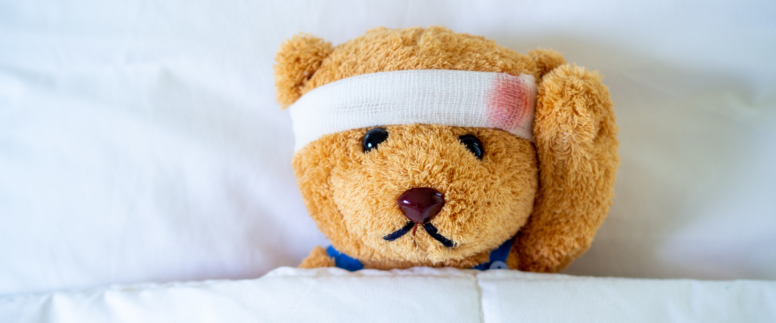The World Head Injury Awareness Day falls on March 20th every year and it looks at the number of people who suffer from a mild bump on their head to severe brain injury. The purpose of this day is to remind us of how we could reduce accidents and brain injuries if we are mindful.
Head injuries in children can be a serious concern and require prompt medical attention. Young children are more susceptible to concussion than adults are, not only because they are more likely to be active and involved in sports, but also because their brains are not yet fully developed and thus more vulnerable to injury.
A head injury is a traumatic insult to the head that may result in injury to either, the soft tissue, the bony structures or the brain itself. These injuries can occur from road accidents, falls, assaults or can be sports-related.
The aim of this day is to remind us how and where possible we could play our role in reducing accidents and brain injuries.
World Head Injury Awareness Day advocates the correct usage of helmets and seat belts, which can significantly prevent or lessen trauma to the head in accidents.
If your head suffers a fairly mild injury, in sport, a vehicle accident, or from a simple slip and fall, it can cause symptoms you don’t expect. If it has not been addressed, it may have long-term consequences.
Head injuries can inflict major damage to the central nervous system and our brain. Even minor head trauma can lead to serious complications should the correct care and treatment not be received in time. Injury to the head can result to anything from concussion, memory loss to severe paralysis and even death. Many people are partially or fully paralysed, simply due to them not wearing the appropriate head gear at the time of the accident. Interestingly, serious brain damage can occur even if the skull remains intact.
Symptoms to look out for:
- Physical symptoms like headache, nausea or vomiting, drowsiness or fatigue, problems with your speech, dizziness or changes in sleep patterns.
- Cognitive symptoms like irritability, mood swings, a feeling of tiring easily, depression, a feeling of being confused or dazed, or an inability to concentrate.
- Sensory symptoms like blurred vision, ringing in your ears, changes in taste or sensitivity to sunlight and other bright lights, or sounds, you may need medical attention including vestibular rehabilitation therapy.
When to be worried:
- If the person can’t be roused within the first 6 hours of the injury occurring.
- If there are behavioural changes i.e aggression.
- If there is a loss or decreased level of consciousness.
- If there is a severe headache with projectile (fountain) vomiting.
- If there is speech difficulty.
What to do:
- Anyone with an injury to the head needs to be monitored for at least 24 hours.
- Call for help or transport the person to the hospital if their symptoms worsen.
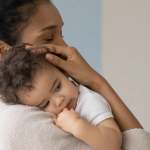
Baby and Child CPR and First Aid Course
Baby & Child CPR and First Aid Course Our Baby and Child CPR and First Aid Course is tailor-made for parents. This vital course will teach a parent how to handle an accident or emergency involving babies and children. You will learn how to handle all First Aid emergencies as
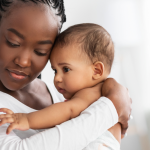
Nanny and Childminder CPR and First Aid Course
Nanny / Childminder CPR & First Aid Course As a parent, it is important that the person looking after your child has the skills to handle an emergency at home. Whether your child is in the care of a nanny or childminder, it’s crucial to ensure they are equipped with

Online Baby & Child CPR and First Aid Course
Online Baby And Child CPR And First Aid Course Empower yourself to handle emergencies with our comprehensive Online Course. Perfect for new and expectant parents, grandparents, childminders, and anyone caring for young ones. Learn crucial First Aid skills and lifesaving CPR techniques led by owner and founder of Survival CPR®,
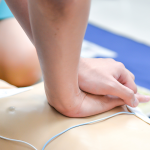
BLS (Basic Life Support) Course
Basic Life Support Course This American Heart Association Course is designed for medical professionals (physiotherapists, chiropractors, homeopaths, doctors, nurses, dentists, pharmacists etc), who are registered with the Health Professions Council of South Africa. Course Cost Members of the public are also allowed to attend this Course R 1450 Acquire10 CPD

Pre-School to High School CPR and First Aid Courses
Pre-School to High School CPR and First Aid Courses Ensure the safety of young lives with our comprehensive CPR and First Aid Course. This vital training is tailored to the unique needs of Preschool, Primary School, and High School staff, empowering them to respond effectively to accidents and medical emergencies.
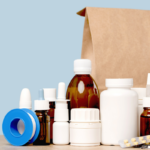
Safe Administration and Storage Of Medications In Schools
Safe Administration and Storage Of Medications In Schools Course This course is tailor-made for the school setting, educators and affiliated staff. You will also learn how to handle certain emergency situations as well as life saving CPR skills. This course is a must for all schools. Enrol now to gain
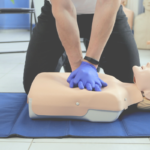
Level 1 First Aid Course
Level 1 First Aid Course Any workplace with more than ten employees must have a trained first aider and first aid supplies on the premises, according to the Occupational Health and Safety Act. We offer you a First Aid accredited Course. Course Cost accredited by HWSETA and aligned to Unit
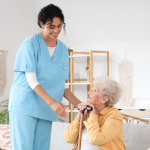
Caregiver Course
Caregiver Course Are you passionate about helping others? Our Caregiver Course equips you with the skills and knowledge needed to provide compassionate care to a diverse range of individuals, including babies, the elderly, patients with Alzheimer’s or dementia, the terminally ill, paraplegic individuals, stroke survivors, and so much more. Course
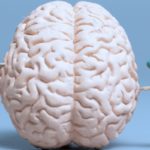
The Importance of learning First Aid if your child has a brain injury
As parents, our greatest wish is to provide our children with a safe and nurturing environment, ensuring they have the opportunities and care we may not have experienced ourselves. We navigate through their milestones, holding their hands as they learn to walk, climb, and explore the world around them. However,


